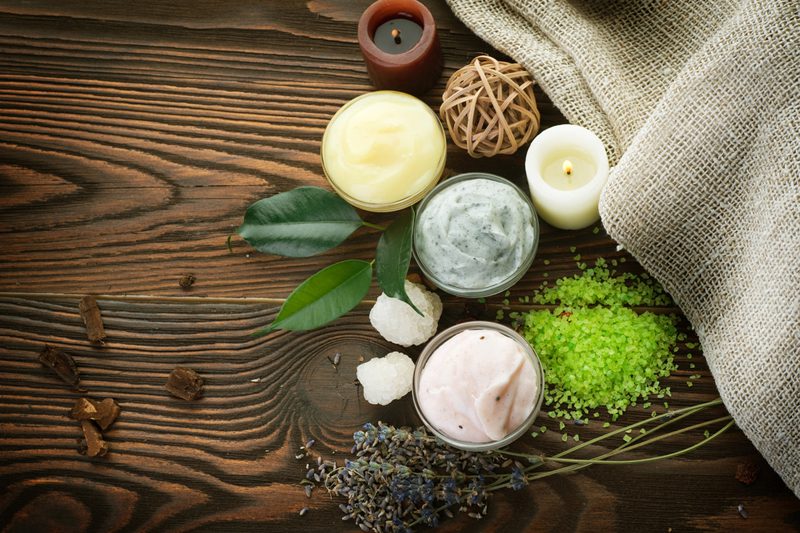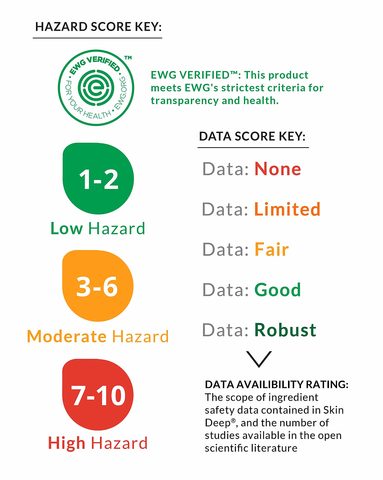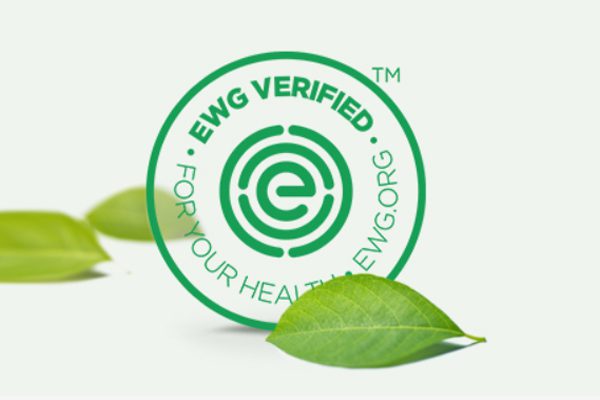
If you’re into clean beauty, you’ve probably spotted a small green circle with the saying ‘EWG Verified’, but do you know what it means? EWG stands for Environmental Working Group, a non-profit organization that supports environmental legislation and reviews personal care products against a variety of international standards to assess their human and environmental health risks. Though criticized for scare-mongering, EWG does strive to educate on ingredient research and product safety with the intent to help consumers make informed and healthy purchasing choices.
EWG was founded in 1993 by Ken Cook and Richard Wiles and is headquartered in Washington, D.C.1 According to EWG’s website, its mission is to “empower you with breakthrough research to make informed choices and live a healthy life in a healthy environment.”2
Since 2003, EWG has worked to address outdated legislation, harmful agricultural practices, and industry loopholes that pose risks to human health and the health of the environment. The organization employs a team of scientists, policy experts, lawyers, and data experts to help reform broken chemical safety systems and agriculture laws in hopes to create a safer environment.
EWG maintains six key areas of focus and research: Food and Water, Farming and Agriculture, Personal Care Products, Household and Consumer Products, Energy, and Toxic Chemicals.
Pesticides and other chemicals used on the food we eat and in the water we drink have led to widespread health issues. There are more than 1,000 pesticides used around the world with different toxicological effects.3 Additionally, while 91 pollutants are regulated by the Safe Drinking Water Act, the Environmental Protection Agency estimates that more than 60,000 chemicals are still used within the United States.4
EWG advocates for clean food and water. It maintains a Guide to Safe Drinking Water and also a Tap Water Database. It is currently beckoning consumers to sign its petition demanding that General Mills remove glyphosate from its food.
Industrial farming depends on large amounts of fertilizer and manure that can contain nitrate and other harmful agents. These chemicals run off the fields and contaminate rivers and lakes. Nitrate can trigger potentially toxic algal blooms in bodies of water, making them unsafe for recreation and drinking.5
Additionally, farmers live and work in conditions that can expose them to harmful substances. Often living with inadequate healthcare, farmers are at risk for acute and chronic illness. EWG is seeking state and federal solutions that will lead to safer agriculture, healthier work conditions, and better healthcare.
Personal care products are largely unregulated by the Food and Drug Administration. It’s been more than 80 years since Congress has updated the federal law designed to ensure personal care products are safe for use.6 Additionally, the FDA does not require or oversee basic safety testing of ingredients used in personal use products. Needless to say, this leaves the consumer exposed to using products that can be less than safe.
EWG maintains an extensive Skin Deep Consumer Guide to Cosmetics evaluating the safety profile of thousands of personal care products based on their ingredients. Clinical data, neurotoxicity, allergic reactions, endocrine disruption, and carcinogenicity are some of the warnings offered. Though the database has come under fire by some scientists for referencing bad research and overstating risk as well as its inability to accurately assess safety based upon actual ingredient levels in formulas (which tend to be proprietary), it still remains perhaps the most comprehensive database for personal care product safety in the world today.
Sunscreen has become a very hot topic in personal care product safety as of late. EWG maintains Sunscreen Guide to help consumers navigate and find safe sun protection.
Many household and consumer products can be unsafe to use regularly, such as cellphones, cleaning supplies, cookware, and food containers. Cellphones, for example, have long been blamed for radiation, and while the jury is still out on the subject, EWG helps keep consumers up to date on tips to reduce exposure.
Cleaning products can adversely affect our health and the environment due to ingredient toxicity. It’s been proven that cleaning personnel can develop lung damage similar to those who smoke 20 cigarettes a day over a 10 to 20 year period.7 Due to these issues, EWG created a Guide to Healthy Cleaning to help consumers make informed decisions.
States like California are leading the renewable energy movement by implementing policies that promote and support emission-free energy. This has caused forward-looking utility companies to move away from dangerous and expensive coal and nuclear power. Currently, EWG is working to advance the clean energy economy by harnessing expert analysis and data-driven resources to show how clean energy protects our health and the world we’re living in.
Reliance on fossil fuels has had devastating consequences to the environment and human health, so EWG has published a Guide to Solar Energy to further knowledge on this pressing issue.
EWG has advocated to eliminate toxic chemicals from food, water, clothing, and other goods, and it has also compiled a list of the most common toxic chemicals consumers come in contact with daily. Scroll to the bottom of this page to learn more.
The EWG Verified mark denotes products that have applied to be evaluated by the EWG research team, that meet strict criteria and safety standards, and that pay a licensing fee to use the mark in commerce. Meeting EWG’s full criteria is no easy feat.
Health standards in EWG’s criteria include:
Companies with EWG Verified products must:
EWG’s extensive Unacceptable and Restricted ingredient lists contain thousands of materials along with reasons why they are deemed unacceptable or restricted. EWG explains the entirety of its strict criteria here.

It is evident that EWG cares about human health and the environment, so products need to be very specifically qualified to join the EWG Verified program. To achieve verification, here are the steps that must be taken:

Humanist Beauty Herban Wisdom™ Facial Oil is EWG Verified, which means that we have met EWG’s criteria for being fully transparent with ingredients used, maintaining good manufacturing practices, and being fully committed to human health and the environment.
Herban Wisdom™ Facial Oil is made from 100% naturally-derived vegan ingredients, along with being cruelty-free, dye-free, gluten-free, paraben-free, and triple-tested. View its complete ingredient glossary on our website, and shop the Herban Wisdom™ Facial Oil here.
—
https://en.wikipedia.org/wiki/Environmental_Working_Group [1]
https://www.ewg.org/who-we-are/our-mission [2]
https://blog.primowater.com/blog/common-chemicals-in-tap-water#:~:text=While%2091%20pollutants%20are%20regulated,used%20within%20the%20United%20States. [4]
https://www.betalabservices.com/nitrates-in-water/#:~:text=Algal%20Bloom%20in%20Florida%20and%20the%20Role%20of%20Nitrates&text=Algal%20bloom%20is%20defined%20as,referred%20to%20as%20nutrient%20pollution. [5]
https://www.ewg.org/areas-focus/personal-care-products/cosmetics [6]
https://www.econsciousliving.com/chemicals-in-cleaning-products/

Disclaimer: Statements on this website have not been evaluated by the FDA. These products are not intended to diagnose, mitigate, treat, cure, or prevent any disease, nor are the products intended to affect the structure or any function of the body of man/woman or other animals. CANNABIDIOL USE WHILE PREGNANT OR BREASTFEEDING MAY BE HARMFUL. KEEP OUT OF REACH OF CHILDREN. Humanist Beauty Herban Wisdom products include hemp extract that contain less than 0.3% THC. Products containing CBD or THC are not to be used by or sold to persons under the age of 21.
We don’t retouch the skin of the model humans shown on this website. Keepin’ it real.